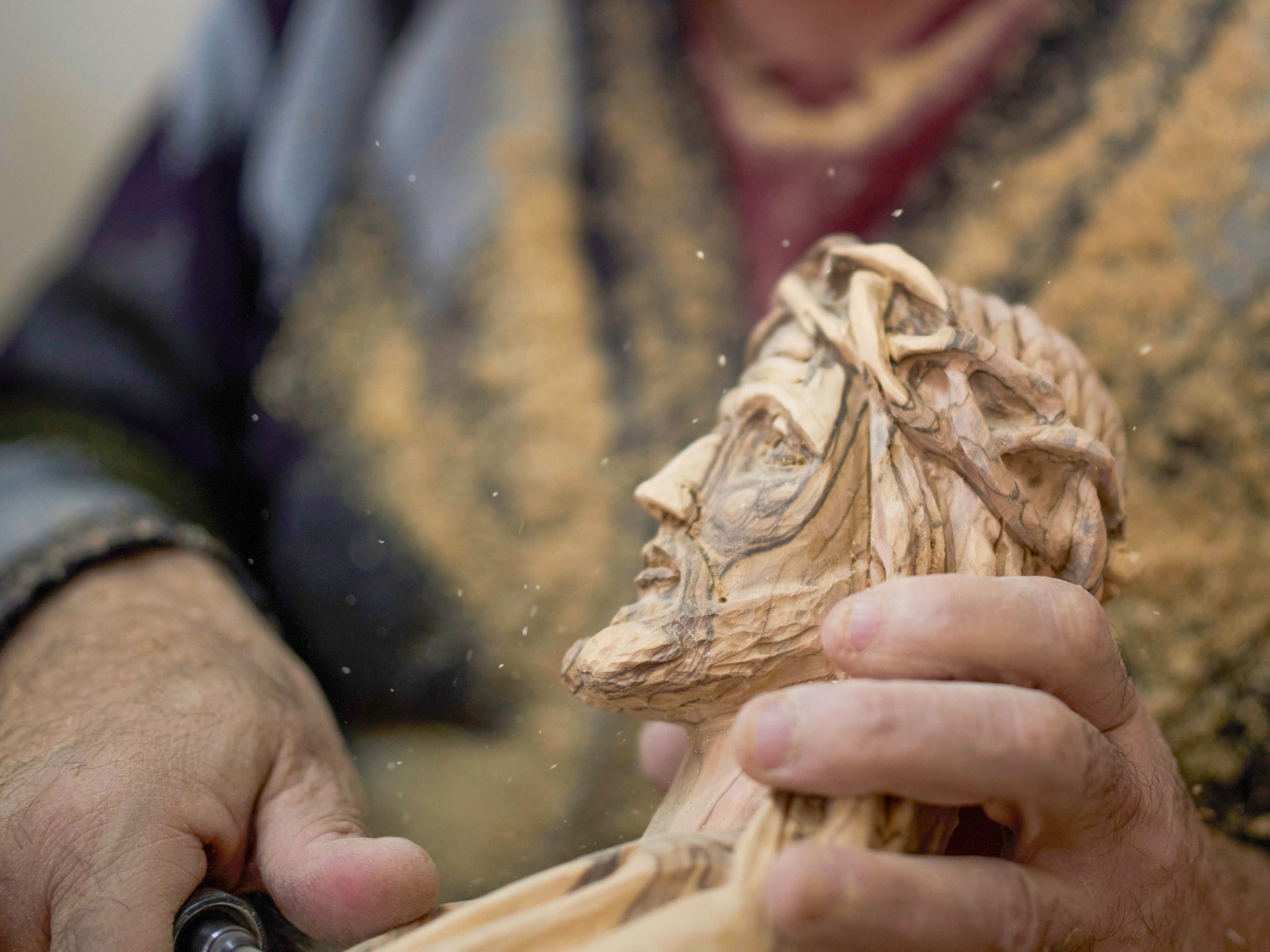On most Easter holidays, the cobbled streets of Bethlehem — the occupied West Bank town revered as the birthplace of Jesus — would be bustling with tourists.
Pilgrims and sightseers once packed the souvenir shops, providing a vital lifeline for local artisans. But since Israel’s war on Gaza erupted in October 2023, the usual flow of visitors has dried up.
Attalah Zacharia, a veteran olive wood carver, now relies heavily on exports to Europe and the United States. But even that stream of income is now in jeopardy, as recently announced US tariffs threaten to choke off the few remaining sales.
Easter and Christmas are traditionally high seasons for Bethlehem, where tourism accounts for 70 percent of the city’s annual income.
“Bethlehem as a tourist destination has faced a very difficult period during the last two years,” said Anton Salman, the city’s mayor.
Without visitors, the town’s artisan workshops have fallen eerily quiet.
In Zacharia’s store, rows of intricately carved crucifixes and nativity figurines gather dust. Palestinian carvers sit idle, surrounded by the wares they once sold to a global clientele.
“There is no tourism,” Zacharia said, “so there is no work”.
His workshop, a family business established in the West Bank in 1960, has been forced to slash its workforce from 25 to just 10 employees. Zacharia now opens only two days a week.
He estimates his business has suffered a 75 percent decline since the start of the war.
Piles of the soft, richly grained olive wood traditionally used for Bethlehem’s carvings lie stacked outside his shop. On a long workbench, miniature figures of Jesus on the cross are lined up, each unique due to the wood’s natural markings.
“Before, of course, the situation was completely normal, the entire crew was working,” Zacharia said. “I don’t know what the future holds.”
Israel resumed its bombardment of Gaza last month, breaking a ceasefire that had begun in January.
With no end in sight to the conflict, tourism in Israel and the occupied West Bank has plummeted.
Compounding the crisis, Israel has barred entry to most of the 150,000 Palestinians from the West Bank who once worked in Israel, dealing a heavy blow to the Palestinian economy — which contracted by 25 percent in the past year.
Bassem Giacaman, another seasoned woodworker whose shop overlooks Manger Square, momentarily perks up when a rare customer enters his factory.
US President Donald Trump this week delayed the implementation of new import tariffs for 90 days after they triggered a four-day market rout and raised fears of a looming global recession. But for business owners like Giacaman, the reprieve offers only a temporary relief.
If the tariffs are enforced, he says, the consequences will be dire. Already, two clients have put their orders on hold. With most Palestinian exports routed through Israeli markets, artisans face the risk of a 17 percent tax on their goods.
“I’ll have to increase my prices,” he said. “It will be damaging to every business in the West Bank.”
Giacaman says one of his handcrafted wooden crucifixes even made its way into the hands of Trump. He proudly shows on his phone a photograph of the former US president holding the miniature cross.
While the image offers a moment of pride, it does not reflect broader political sentiment.
He adds that neither he nor many other Palestinians support Trump.
